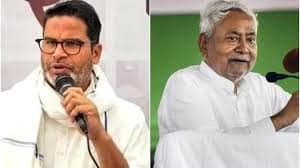
Viral Video from Malda Shocks India: Unpacking the Unrest and the Waqf Controversy
A disturbing viral video from Malda, West Bengal, has stunned India, thrusting the nation into a heated debate over rising tensions and their deeper causes. The footage captures a mob vandalizing Hindu-owned shops, homes, and vehicles in Mothabari, Malda, while similar incidents ripple through Murshidabad and Medinipur, placing these regions on high alert. Reports link these events to Muslim groups reacting violently, with many pointing to the Modi government’s proposed Waqf (Amendment) Bill, 2024, as the spark. This unrest, from Nagpur to West Bengal, raises critical questions about the Waqf Board’s vast influence and the escalating clashes tied to its contested powers.
The Malda Incident: Chaos Caught on Camera
The video from Malda reveals a mob targeting Hindu properties with precision—shops burn, vehicles are smashed, and families flee amid shouts of intimidation. In Murshidabad (66.28% Muslim per 2011 Census) and Malda (51.27% Muslim), the violence erupted within 48 hours, allegedly triggered by claims of blasphemy during Ram Navami preparations. Similar scenes unfolded in Jhaubona, Murshidabad, and Dakshin Barbaria, Purba Medinipur, where police struggled to contain the aggression. Witnesses report the mob taunted authorities, highlighting a boldness that has alarmed locals and officials alike.
The Waqf Bill: A Flashpoint for Conflict
These incidents are not isolated—they connect to a nationwide pattern tied to the Waqf Bill. Currently under review by a Joint Parliamentary Committee, the bill aims to reform the Waqf Act of 1995 by introducing transparency, audits, and measures to reclaim illegally occupied properties. The Waqf Board, India’s third-largest landowner after Railways and Defense, holds immense sway, managing over 80,480 properties in West Bengal alone and millions of acres nationwide. Critics argue it has abused its authority, claiming lands—including entire villages and 1500-year-old Hindu temples—without the owners’ consent, a power rooted in the Act’s unique provisions.
The bill threatens this system, prompting fierce resistance from Muslim organizations like the All India Muslim Personal Law Board (AIMPLB). Protests have erupted from Patna to Mumbai, with some escalating into violence, as seen in Nagpur earlier this month. There, what began as a demonstration against the bill spiraled into chaos, requiring curfews. Now, Malda and its neighbors appear to be the latest battlegrounds, with mobs allegedly using unrest to pressure the government into abandoning the reforms.
The Waqf Board’s Controversial Reach
The Waqf Board’s influence is vast and contentious. It can designate any property as “waqf” (dedicated to Islamic charity), even without permission, and once claimed, disputes are confined to Waqf Tribunals—courts critics say rarely deliver justice to non-Muslims. This has led to allegations of land grabs, such as in Tengaberia, Purba Bardhaman, where 4.62 acres of Hindu and tribal land were recently taken, or in cases involving ancient temples predating Islam’s 1,400-year history. How a faith established in the 7th century claims 1500-year-old structures remains a point of contention, fueling demands for reform.
In West Bengal, the Waqf Board’s holdings—from Kolkata’s High Court vicinity to Fort William—have drawn scrutiny, with some accusing the ruling Trinamool Congress (TMC) of exploiting these assets for political gain. Nationwide, the board’s opacity has enriched a select few, making the bill’s push for digitization and accountability a direct challenge to entrenched interests.
A Pattern of Protest and Politics
The violence in Nagpur served as a warning, and now, Malda, Murshidabad, and Medinipur reflect a broader strategy. The AIMPLB and its allies frame the bill as an assault on Muslim rights, rallying supporters in Hyderabad, Vijayawada, and beyond. Yet, the bill’s provisions—like including non-Muslims on Waqf Boards—mirror oversight of Hindu endowments in states like Kerala, exposing a perceived double standard. Opposition parties, including TMC, DMK, and AIMIM, fiercely defend the status quo, likely eyeing Muslim vote banks (27% in West Bengal, 17% in Bihar), even as the Waqf Board’s actions displace others.
Modi’s Push for Reform
The Modi government remains steadfast, arguing that the Waqf Bill restores fairness and protects India’s secular framework. By curbing arbitrary land seizures and mandating transparency, it seeks to dismantle a system critics call feudal. The inclusion of non-Muslims in governance, a sticking point for opponents, aligns with practices in Hindu temple administration, yet Muslim bodies demand exemption—a stance the government rejects as inconsistent.
Conclusion: A Nation Divided
The Malda video is more than a local outrage—it’s a window into a national crisis. Muslims are driving violence in multiple regions, from Nagpur’s streets to West Bengal’s villages, to shield the Waqf Board’s unchecked power from the looming Waqf Bill. This isn’t just about land—it’s about control, justice, and the future of India’s pluralistic identity. As flames rise in Murshidabad and Medinipur, the Modi administration faces a defining test: will reform prevail, or will unrest dictate the outcome? The answer will shape India for years to come.
By BHARAT GLOBAL TIME





